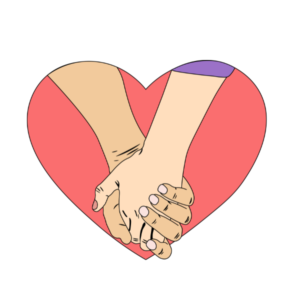Understanding Self-Hatred
Getting to grips with self-hatred is a real head-scratcher. It’s like hosting an unwelcome guest in your own mind, always whispering, “You’re just not cutting it.” Many folks get caught in this loop, feeling like a perpetual underdog up against an unbeatable rival called “perfection.” They only see what’s wrong, never right, and kinda end up stuck in a dissatisfaction-nado. If this sounds familiar, you’re not alone—there’s a whole lot going on up there, according to Psychology Today.
Impact on Self-Perception
The way self-hatred messes with your identity is like pouring salt in a wound. People wrapped up in self-disgust might find keeping pals around harder than herding cats, avoid close relationships like a vampire dodges sunlight, and see setting goals as climbing a greased-up slide. All that while their brains keep comparing them to everyone else, playing judge and jury against their own self-worth (Medical News Today).
Taking a compliment can feel like trying to catch smoke with your bare hands when you’re swimming in self-loathing. That little voice inside shifts the focus to criticisms and causes the real story to get lost in translation. But guess what? Everyone else might think you’re pretty darn great, even if you can’t see it. So, knowing this mismatch exists could be the first step in gathering the courage to ditch the negativity dance (Psychology Today).
Beyond just making people feel crummy, ongoing self-hatred can morph into mental monsters like depression, addiction, or feelings of being less than dirt. For some, it’s a slippery slope to harming themselves or others, major red flags that need attention (WebMD).
Spotting the warning signs is like trying to solve a puzzle blindfolded, but they’re there. Negative self-talk, sizing yourself up against others, feeling unworthy, or thinking, “I’m a failure”—these inner dialogues can sneakily chip away at your sanity, inching you closer to bigger mental storms if not turned around (Verywell Mind).
Getting a handle on these self-destructive habits could be the light at the end of the tunnel, helping people gear up for a cleaner, calmer ride to self-love town. Tired of the negative nancy in your head? Check out ways to step out of your own way in our piece on overcoming self-hatred.
Root Causes of Self-Hatred
Unraveling the puzzle of self-hatred often takes us way back to when we were just kids and how we came to swallow criticisms like candy. These nasty beginnings can tinker with how we see ourselves, molding negative thoughts and feelings that like to tag along into grown-up life.
Childhood Experiences
Picture this: being a kid is all about piecing together who you are and how you feel about yourself. If this period is marred by less-than-happy memories, it can mess with your self-esteem mojo. Authoritarian or harsh adults can leave a considerable mark, as researchers from WebMD point out. Kids stewing in criticism, abuse, or too much control may not just brush these off—they more likely tuck them inside, triggering a nagging inner critic and that ‘I’m not enough’ vibe.
Now, here’s the thing. Parents and caregivers kinda set the stage for a child’s self-esteem. Tough-love or just plain rough behavior can chip away at a kid’s self-worth. Even if they’re not directly to blame, kids might catch these self-hatred habits from caregivers, living them out far beyond their years in short pants.
Internalized Criticism
What happens when you make those digs and harsh words your own? Internalized criticism is the name of this game, starting way back in childhood. Growing up with hard knocks or having their spirit dampened gives rise to self-loathing later in life, as explained by Medical News Today. When kids hear disparaging remarks over and over, it’s like planting weeds that grow into a perpetual inner critic that won’t shut up.
And so begins a treacherous cycle. People end up setting impossible benchmarks for themselves, feeling like failures, and drowning in shame. Those nasty words and put-downs can shade how they view their entire beings, held hostage by their feelings of inadequacy.
Getting to the nitty-gritty of why self-hatred rears its ugly head—especially how our kiddie years and learned negativity play a part—can be a game-changer in tackling and moving past self-hatred. Recognizing this tangled web’s influence gives folks the tools to nurture self-love and challenge those ugly beliefs. It’s about making room for self-acceptance and starting fresh on the road to inner peace.
Signs and Symptoms
Spotting the red flags of self-hatred is all about catching this sneaky monster before it settles in. Two tell-tale signs? You’ve got negative self-talk and that nasty habit of comparing yourself to anyone and everyone.
Negative Self-Talk
Negative self-talk, like a bad habit, can take center stage when self-hatred pops up. You catch yourself having a mean-spirited dialogue in your head, knocking yourself down for any little thing. And let’s be real, it can make you feel like dirt, leaving you in a funk with zero self-esteem.
Look out for these signs you’re talking trash to yourself:
- Always putting yourself down or blaming yourself
- Feeling forever guilty or ashamed
- Imagining worst-case scenarios like they’ve already happened
- Being your worst critic and focusing on failures
Challenge these thoughts by turning them on their head. Try using cognitive restructuring tricks like positive affirmations or mindfulness exercises. And hey, talking to a therapist or counselor can give your headspace a total makeover, leaving you feeling a lot kinder to yourself.
Comparison to Others
Ah, the comparison game—it can fuel self-hatred faster than a wildfire. Feeling like you never measure up, always sizing yourself against someone else’s highlight reel. It’s exhausting and cuts deep, making you feel downright lousy.
See if any of this rings a bell:
- Craving approval like you need it to survive
- Turning green with envy over others’ achievements
- Sabotaging yourself trying to keep up with the Jones’
- Needing a ‘like’ as a badge of worth
Stop playing this game by getting to know and love yourself better. Self-compression is key; focus on setting your own goals. Forget the neighbors—this is about your growth, your pace. Peek at our tips on dumping self-hatred here and start loving the skin you’re in.
When you spot these signs waving at you, act fast. Addressing self-hatred head-on with professional support and self-help tools is vital. Once you start down this path, you’ll discover a world where you appreciate, rather than harshly judge, the person in the mirror.
Effects on Mental Health
Self-hatred messes with your head big time. It’s like mental quicksand, dragging you further into the mud of depression and pushing you toward risky behavior like substance abuse. Let’s break it down.
Relationship with Depression
Feeling like your own worst critic can really amplify depression. It’s a vicious circle of gloominess fueled by negative self-talk, clouding your view of yourself. That nagging feeling of being worthless or pointless runs hand-in-hand with depressive thoughts, and it just drags you down into a pit of despair.
Per Medical News Today, thinking poorly of yourself can mess with your self-respect and confidence, teetering you closer to depression. It’s like an inner bully, always critical, setting a stage where all those nasty depressive thoughts flourish and chip away at your mental peace.
Risk of Substance Abuse
When you’re caught up in self-loathing, turning to booze or other substances might seem like the only escape hatch from those feelings of inadequacy. That internal monologue of self-dislike? It can pave a rough road to self-harm, like substance misuse.
WebMD hints that if self-loathing isn’t tackled, it tags along with some heavy baggage like substance abuse. Those harsh words you say to yourself can become so overwhelming that diving into destructive behaviors feels unavoidable, spiraling guilt and embarrassment even more.
Being aware of how self-loathing sinks its teeth into mental health—especially how it clings to depression and nudges toward substance abuse—is a must. Reaching out for some expert advice (overcoming self-hatred) or picking up self-help moves could start breaking that mean cycle, nudging you towards mental wellness. Tackling the roots of self-hatred and finding healthier outlets can help folks move towards healing and start being kinder to themselves (dealing with self-hatred).
Overcoming Self-Hatred
Feeling down on yourself is rough, but beating those vibes is key to being kinder to yourself and liking who you see in the mirror. Getting some professional advice mixed with some self-care action can really help.
Seeking Professional Help
Seeing a therapist or counselor could be just the ticket for unpacking all those nasty feelings about yourself. They offer a safe, open place where you can work through negative thoughts, find out why you feel this way and learn to cope better. Therapy is like having a conversation partner who’s got your back as you tackle all the crummy stuff you tell yourself.
Therapists have all sorts of tricks up their sleeves, like mindfulness and talking things out, helping you call out those pesky bad thoughts that won’t quit, like thinking it’s all or nothing or making a mountain out of a molehill (Healthline).
Self-Help Techniques
On top of chatting with a pro, adding some DIY methods can boost your efforts to be nicer to yourself and accept who you are. These self-help tactics dish out hands-on ways to ditch the negativity and have a better inner conversation. Here’s some stuff you can try:
- Journaling: Letting your thoughts spill onto paper can uncover patterns in negative thinking and dig into what’s bugging you.
- Mindfulness Meditation: Adding mindfulness to your daily grind helps you notice and accept yourself just as you are, minus the judgments.
- Positive Affirmations: Swap out harsh thoughts for feel-good affirmations to shift your mental chatter to a place of self-love and encouragement.
- Self-Care Activities: Doing things that make you feel cared for, like a good workout, a beloved hobby, or hanging out with folks who lift you up, can skyrocket your confidence and happiness.
Rolling with both therapy and self-help tools could help you push past those nasty thoughts over time. This combo doesn’t just tackle the surface stuff; it builds up your self-esteem and acceptance from the bottom up. Wanna dig deeper into ways to fight negative thinking? Check out our article on self-hatred patterns.
Promoting Self-Love
When you’re trying to heal and feel the love for yourself that you’ve been missing, there are a couple of must-dos: be kind to yourself and find the people who make your heart smile. Let’s chat about why being your own best friend and surrounding yourself with a solid crew matters big time.
Practicing Self-Compassion
Being kind to yourself might sound like a no-brainer, but it’s a game-changer for self-love. Think about it: how often do you beat yourself up over little things? Cut that out and treat yourself with the patience and warmth you’d give a dear friend. Everyone messes up sometimes—it’s part of being human. So give yourself a break and a pat on the back for trying.
Swap out those nagging negative thoughts with a bit of kindness. Catch yourself when you’re being harsh and ask, “Would I say this to someone I care about?” Probably not. Try out some feel-good activities like meditation, or dive into a comforting book or a hobby. These can turn your mind from critic to cheerleader. Changing the way you talk to yourself—think positive, encouraging words—can really lift your spirits.
Building Positive Relationships
People say it’s the company you keep that counts, and they’re onto something. Surrounding yourself with supportive folks is like finding a soft place to land. It’s all about feeling loved and understood. When you spend time with family or close friends, you get those feels of acceptance and genuine empathy—that’s the perfect recipe for boosting how you see yourself.
Hang out with people who give you joy, whether it’s your childhood buddies or a group with similar interests. Sharing stories, cracking jokes, or even having heart-to-heart talks can leave you feeling seen and valued. Tap into social interactions that feed your soul, like joining a club or having heartening therapy chats. These connections can become your go-tos when life gets tricky, providing the boost and belonging we all need.
By focusing on being gentle with yourself and building those rock-solid relationships, you’re setting yourself on the path to discovering the best version of you. You’re planting the seeds of love and confidence, growing something resilient that stands strong against that pesky self-doubt. Want more advice on booting the blues from your life? Check out what we’ve got on breaking free from self-hatred loops.




